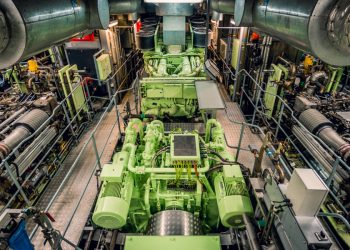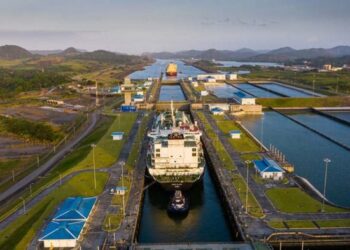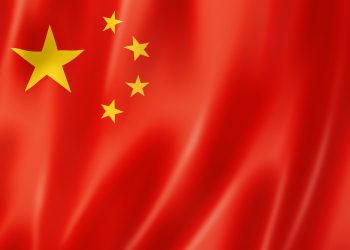2020 is proving to be a crucial year in the development of technologies and initiatives relating to maritime autonomous surface ships (MASS). In what is seen as the point of departure for regulators, the IMO’s Maritime Safety Committee is set to conclude an initial scoping exercise into the application of IMO regulations in the context of MASS.
With the IMO confident that autonomous vessels have a significant part to play in the future of shipping, those already engaged in project development have a starting point for interaction with global regulators.
ABB Marine & Ports, classification society ClassNK, the One Sea autonomous maritime ecosystem and mobile satellite communications provider Inmarsat represent four leading centres of autonomous ship expertise. In an area of shipping often swept up in hyperbole, a webinar hosted by maritime public relations and communications agency JLA Media on June 30th saw speakers from each organisation focusing on autonomous ship realities and the challenges posed for safety, regulation, testing and human-machine interaction.
From the outset, Capt. Eero Lehtovaara, Head of Regulatory Affairs, ABB Marine & Ports emphasised that there is no common understanding of autonomous shipping and therefore limited his discussion of the concept to its deployment in navigation. However, he said that the technology to enable automated navigation is widely available and in use, and that efforts to advance MASS should focus on the interaction between human and machine, in addition to regulatory affairs.
According to Lehtovaara, the minimum requirement for MASS is that they are as safe as traditional vessels and improve efficiency. However, at least for the foreseeable future, humans will remain an important part of the equation, supported – rather than replaced – by technology. New technologies may come on board, but “I don’t see the key drivers as being to take people off ships”.
Decision support
Rather, he predicted that the introduction of decision support systems and other intelligent technology will transform working practices on vessels. For instance, on a ship operating in open waters, the crew could work “office hours”, which Lehtovaara said could change how people perceive being on board and allow seafarers to live “somewhat more within social norms”.
Before this notion becomes a reality, he said, the supporting technology first needs to mature and undergo stringent testing. There also needs to be sufficient demand from customers, as well as regulatory backing. “The lawmakers want to see safety at the heart of this discussion. They want to be sure that when they regulate [a new technology], it will be accepted as a norm in the industry.”
Although autonomous oceangoing vessels remain a distant aspiration, the machinery that will soon support decision-making on larger ships could also allow smaller vessels to navigate independently, said Lehtovaara. The adoption of MASS will be a gradual process, but it will ultimately have a huge impact on the industry, he concluded.
Mr Tomoaki Yamada, Manager of Research Institute, ClassNK echoed Captain Lehtovaara’s assessment that there is no single, firmly established definition for automation within the marine industry. In its ‘Guidelines for Automated Operation/Autonomous Operation on ships’, issued in January, ClassNK defines automation as “a condition where computer systems take charge of the execution of some or all of the decision-making processes”.
The aim of automation
These guidelines, said Yamada, can be applied to technologies that target unmanned navigation on coastal ships with short navigation routes, as well as to those that aim to provide high-level assistance to the crews of oceangoing vessels.
They were first employed in February, with ClassNK granting an approval in principle to NYK Line and MTI for their joint project on a “framework for the realisation of MASS that can support crewmembers’ situational awareness”. The classification society “confirmed the feasibility of the framework through safety evaluation” in line with its guidelines.
Yamada said that ClassNK’s next contribution to the shipping industry would be “to confirm the validity and integrity of automated operation systems” using simulation methods, for which “it is necessary to have scenarios including encounters with other ships and disturbances caused by weather and sea conditions”.
ClassNK’s guidelines also describe the basic requirements for remote operation systems, but according to Yamada, more specific safety requirements relating to the technology need to be developed.
For example, we feel that it is necessary to clarify the requirements for communication stability and remote operation centres as soon as possible,
…he said.
A number of MASS demonstration projects have been launched in Japan, and ClassNK is involved in these from the standpoint of safety evaluation. In order to make a global contribution to the maritime industry, ClassNK aims to establish evaluation methods, tools and criteria taking into account the knowledge gained in demonstration projects,
…concluded Yamada.
Päivi Haikkola and Jukka Merenluoto, Senior Ecosystem Leads, introduced the 12-member “company alliance” to drive development of the autonomous ship, and its roles as a coordinator of research projects, test site manager and point of liaison for IMO and other regulators.
Merenluoto provided further detail on One Sea’s latest research-and-development initiatives, which he described as looking at the “whole door-to-door supply chain”, and not only at ships. He pointed to ‘Sea4Value’, “a transformative programme that provides research-based recommendations on regulation, standardisation, business, and data usage and sharing”.
Smart ports, fairways and ships
Sea4Value views the maritime transport system “from the perspective of three domains”: the smart port, “the hub that integrates maritime transport into other modes of transport”; smart fairway navigation, “which looks at fairway services”; and smart shipping, “which looks at open-sea scenarios plus the end-to-end transport aspects of smart shipping”.
One Sea is engaged in projects in all three domains, including the Sea4Value ‘Future Fairway Navigation’ scheme. Launched in February this year, Future Fairway Navigation “seeks to improve safe navigation for existing vessels and lay the foundation for the autonomous vessels of the future”.
To achieve this, it will look to answer four main questions: what future themes will ensure safe navigation? How will the necessary situational awareness be developed? How should the intelligence be distributed between the fairway and ship? And what changes need to be made to fairways and navigational equipment?
“In particular, the programme targets demonstrations and experiments, which are important milestones in the journey towards the smart and autonomous maritime transport system,” said Merenluoto. The initiative is due to conclude in 2022.
Degrees of autonomy
Marco Cristoforo Camporeale, Head of Maritime Digital, Inmarsat divided the concept of MASS into four categories, or degrees of automation. Degree 1, in which “seafarers are on board to operate and control the systems, but part of the operation is automated”, is where we are today. It brings benefits relating to efficiency, regulatory compliance, customer value and crew welfare. “Inmarsat is offering the Fleet Data IoT platform to enable the exchange of information and deliver this advisory system to the crew on board the vessel,” he said.
Degree 2, which sees the ship “controlled and operated from another location”, but with crew on board, is the next stage in the development of MASS. In this case, globally available connectivity is crucial, and “this is where Inmarsat’s Fleet Xpress platform – relying on both L-band and Ka-band – provides the best infrastructure”. Fleet Connect, meanwhile, delivers “dedicated bandwidth for specific applications” to ensure that “certain vital systems receive the connectivity they require”.
In degree 3, “the ship is controlled and operated from another location, but ideally there are no seafarers on board”. Here, “loss of connectivity is not acceptable”, and unlike in degree 2, latency and capacity are key elements because “we need near-real-time control of the ship” when it approaches shore. The technology to allow this level of autonomy is available today, said Camporeale, but it is not currently “scalable to merchant shipping”.
Degree 4 describes a fully autonomous vessel on which “the operating system is able to make decisions and take actions”. It requires a similar level of connectivity to degree 2, “because instead of having people on board, we have an autonomous system that takes control”. Latency would only become an issue, explains Camporeale, when the ship approaches port. In this case, operation would be “handed over to a remote-control station”, requiring the higher capacity and lower latency of the Fleet LTE wireless system, due for launch next year.
Technology in place, humans in the loop
As things stand, marine automation is a tool used to support situational awareness and decision-making on vessels. While the technology and connectivity exist to enable computer systems to play a greater role in shipping, their viability in dynamic, large-scale operations is – for the time being – doubtful.
Consequently, the earliest candidates for full ship autonomy will be smaller vessels operating on short, safe routes, such as ferries. On larger oceangoing ships, automation will simply enhance normal operations. To use Captain Lehtovaara’s words, humans will be “in the loop” for some time – an assessment reflected in ClassNK’s guidelines.
Despite all the uncertainty that remains, One Sea and its member companies – which include ABB and Inmarsat – are committed to realising autonomous commercial maritime applications by 2025. This will require further testing, research and regulation – topics that should be at the heart of any future discussions regarding MASS.






























































